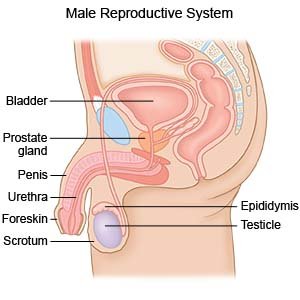Suprapubic Prostatectomy
Medically reviewed by Drugs.com. Last updated on Apr 6, 2025.
What do I need to know about suprapubic prostatectomy?
Suprapubic prostatectomy is surgery to remove part or all of your prostate gland. Your prostate gland is found below your bladder and surrounds the top of your urethra. Your urethra is a tube that carries urine from your bladder to the outside of your body. You may need suprapubic prostatectomy if you have an enlarged prostate.
 |
How do I prepare for surgery?
Your healthcare provider will talk to you about how to prepare for surgery. He or she may tell you not to eat or drink anything after midnight on the day of your surgery. He or she will tell you what medicines to take or not take on the day of your surgery.
Drugs used to treat this and similar conditions
Sandostatin
Sandostatin is used to treat acromegaly and to reduce flushing episodes and watery diarrhea caused ...
Sandostatin LAR Depot
Sandostatin LAR Depot is used for acromegaly, carcinoid tumor, vasoactive intestinal peptide tumor
Omvoh
Omvoh is used to treat moderate to severe ulcerative colitis or Crohn's disease in adults. This ...
Lupron Depot
Lupron Depot (leuprolide acetate) and Lupron Depot-Ped are prescription hormonal injections used to ...
Casodex
Casodex (bicalutamide) is an anti-androgen and is used together with LHRH to treat prostate cancer ...
Xtandi
Xtandi (enzalutamide) is an anti-androgen used to treat prostate prostate cancer. Includes Xtandi ...
Zytiga
Zytiga (abiraterone) is used together with prednisone to treat prostate cancer that has spread to ...
Eligard
Eligard (leuprolide) reduces levels of testosterone and is used to treat prostate cancer. Includes ...
Octreotide
Octreotide systemic is used for acromegaly, carcinoid tumor, diabetes, type 1, diarrhea, dumping ...
Abiraterone
Abiraterone is used along with prednisone or methylprednisolone to treat prostate cancer. Includes ...
What will happen during surgery?
Your surgeon will make an incision in your abdomen below your belly button. He or she will remove part or all of your prostate. A suprapubic catheter may be placed into your bladder through the cut in your abdomen to drain your urine. A drain may be placed near your bladder to remove extra blood and fluid. Your surgeon will use stitches or staples to close your incision.
What are the risks of surgery?
You may bleed more than expected or get an infection. Your bladder, urethra, penis, or nearby tissues may be damaged. Your urethra may become narrow and block the flow of urine. The muscle at the base of your bladder may shorten and cause you to leak urine. Urine may leak inside your body and collect in nearby areas, such as your scrotum. Your kidneys may stop working properly. You may get a blood clot in your leg. This may become life-threatening.
Care Agreement
You have the right to help plan your care. Learn about your health condition and how it may be treated. Discuss treatment options with your healthcare providers to decide what care you want to receive. You always have the right to refuse treatment. The above information is an educational aid only. It is not intended as medical advice for individual conditions or treatments. Talk to your doctor, nurse or pharmacist before following any medical regimen to see if it is safe and effective for you.© Copyright Merative 2025 Information is for End User's use only and may not be sold, redistributed or otherwise used for commercial purposes.
Further information
Always consult your healthcare provider to ensure the information displayed on this page applies to your personal circumstances.
